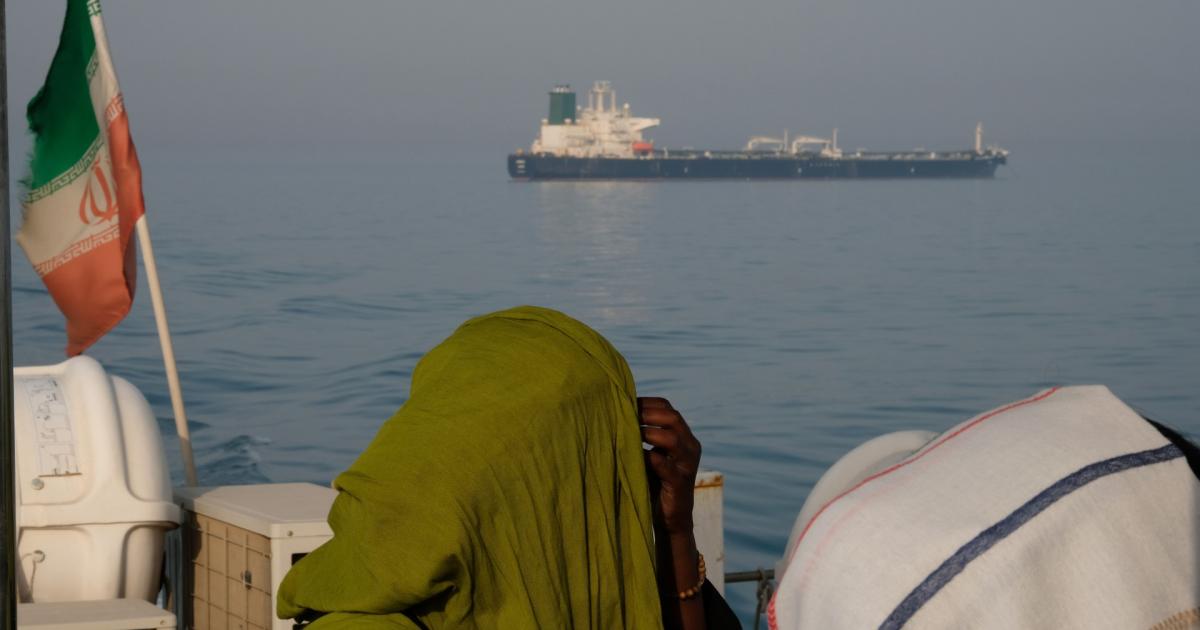The fall reflects relief that Iran appears to have decided against making an attempt to cut off exports of crude from Gulf states in response to the actions of the US and Israel.
Traders feared that Iran would try to block the Strait of Hormuz through which around 20% of global production is shipped, including output from Iran.
Ashley Kelty, oil and gas analyst at Panmure Liberum investment bank, noted the market took Iran’s decision to fire rockets at a US base in Qatar instead as a face-saving move that was intended to de-escalate the situation.
“There was around a $10 per barrel Middle East risk premium over the last week that has been slashed,” said Mr Kelty.
He noted that China may have pressed Iran to show restraint. China has provided a key market for sales of Iranian crude, which are subject to extensive sanctions.
READ MORE: Israeli-owned firm takes control of UK’s biggest gas field
However, Mr Kelty noted traders’ fears that the ceasefire could fall apart.
Israel and Iran accused each other yesterday of breaching it.
“The chances of a long-term deal still look pretty remote,” said Mr Kelty. “The market is waiting to see if the ceasefire holds and what terms each side will agree to.”
Mr Kelty cautioned: “The chances of the Strait of Hormuz being blocked are greatly reduced but they have not gone away.”
He noted that the impact of renewed hostilities could be offset by the fact that leading producers such as Saudi Arabia have agreed to ease curbs on production that were imposed to support prices.
“On fundamentals we are still looking at oversupply this year,” said Mr Kelty.
Against that backdrop, a key factor will be the scale of production increases that members of the Opec + group maintain.
READ MORE: SNP Government oil hypocrisy shocking amid Scottish jobs cull
A fall in oil prices could boost the global economy and fuel demand.
But Saudi Arabia requires a $90/bbl price to balance its budget.
If oil prices drop below $50/bbl US producers would cut production.
Mr Kelty thinks supply and demand will come back into balance next year. Brent is likely to sell for between $60/bbl and $70/bbl this year.
Alan Gelder, SVP refining, chemicals and oil markets at the Wood Mackenzie energy consultancy said the Brent crude price could increase by $5/bbl to $10/bbl if hostilities between Israel and Iran resumed.
Closure of the Strait of Hormuz would result in a more significant increase in prices but the effect would likely prove short-lived. The US and its allies would probably intervene to clear the Strait.
Mr Gelder noted the possibility that demand for crude could fall after US president Donald Trump decides whether to impose the tariffs he put on hold for 90 days after the publication of his plans for them in April. The pause is due to end on July 8.
Mr Trump’s proposals sparked concern around the world.
READ MORE: North Sea drilling curb plans look mad amid Trump trade threats
Mukhesh Sahdev, global head of commodity markets oil at the Rystad Energy consultancy noted the possibility that oil prices could range from the low $60s per barrel towards the mid $70s.
“A correction in supply is likely to be the main theme until demand recovery takes a turn for the better,” he said.
However, Mr Sahdev cautioned: “Ceasefire agreements need to be robust and provide a clear signal to market participants for trading to return to previous levels.
“For now, signals remain uncertain, and geopolitical risks persist, keeping volatility high, even as some progress towards peace is made.”
Brent crude sold for around $65/bbl early this month before Israel launched attacks on Iran on June 13.
On the outlook for stock markets, Chris Beauchamp, Chief Market Analyst at the IG trading platform, said: “The pause in the fighting [between Israel and Iran] removes a key worry for investors and puts a sustained rally in equities back on the table.
“There are still hurdles to navigate, most notably the 8 July deadline for trade deals, but for the moment the market thinks that there will be some kind of fresh extension.”
